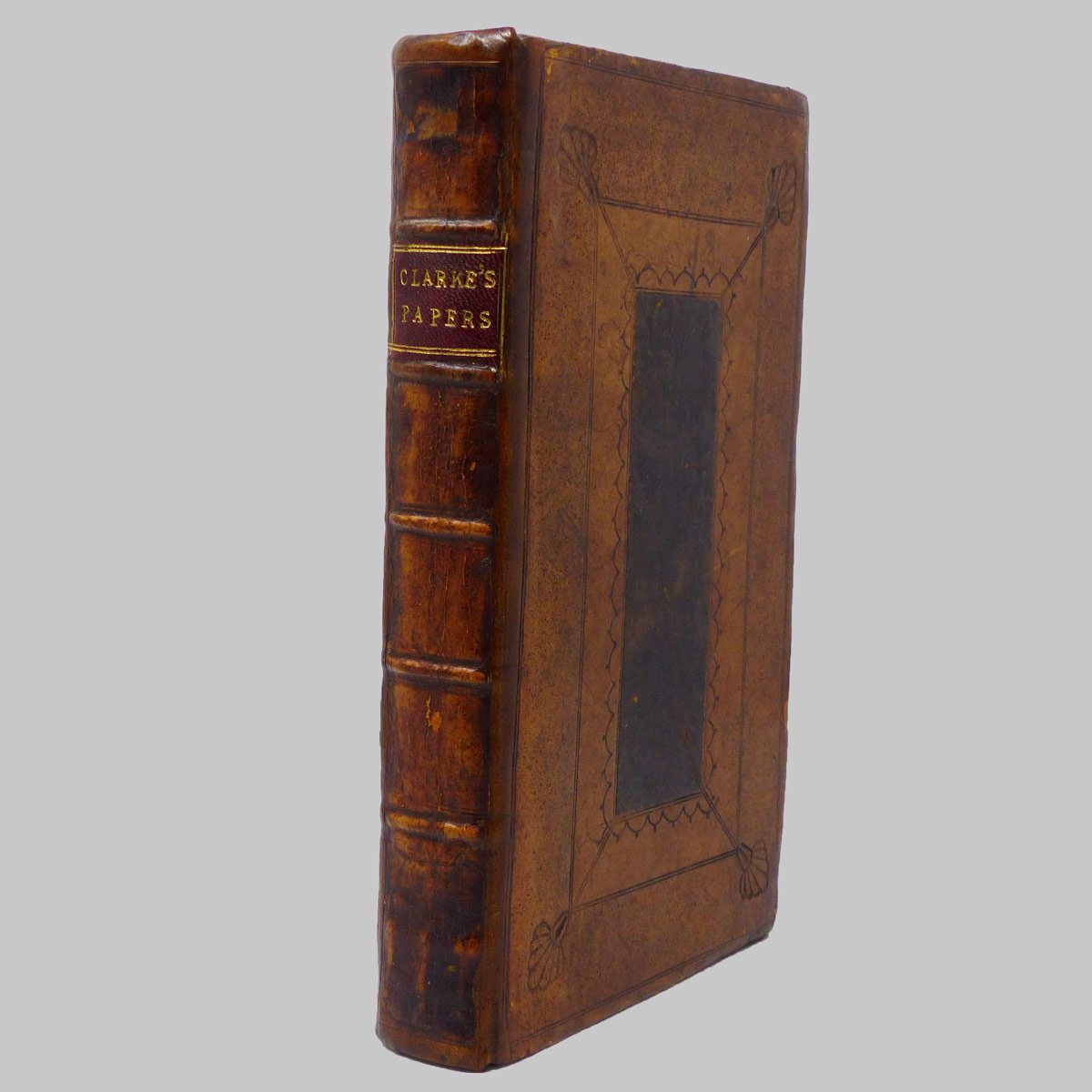 Image 1 of 1
Image 1 of 1


(CLARKE, Samuel.) A collection of papers, which passed between the late learned Mr. Leibnitz, and Dr. Clarke, in the years 1715 and 1716. Relating to the principles of natural philosophy and Religion.
With an Appendix. To which are added, Letters to Dr. Clarke concerning liberty and necessity; From a Gentleman of the University of Cambridge: With the Doctor’s Answers to them. Also Remarks upon a Book, Entitled, A Philosophical Enquiry Concerning Human Liberty.
First Edition. 8vo., xiij, (3, ad to reader & errata), 416, 46, (2, pub. ad) pp. Bound in contemporary panelled calf, rebacked preserving old spine, new morocco spine label. Published by J. Knapton (London) , 1717.
Some very minimal rubbing to the binding, otherwise a fine example.
This work provides important papers on the implications of Newton's ideas on mechanics. Dr. Clarke defended Newton against Leibnitz's accusations of atheism. (Babson 229.) "Clarke's most direct contribution to physics during the course of this correspondence came in a footnote to his fifth paper, in which he considered the problem of computing the force of a moving body." (D.S.B.).
The correspondence between Dr. Clarke and Leibniz continued to be highly significant for thinkers producing works towards the end of the 18th century. “Unlike the vis viva controversy and other disputes between the Cartesians and the Leibnizians, which died out by the middle of the century, the debate between the Leibnizians and the Newtonians remained philosophically salient for decades, serving as the impetus for Emilie Du Châtelet's influential work during the French Enlightenment, Foundations of Physics (1740), and also as one of the driving forces behind Kant's development of the “critical” philosophy during the 1770s, culminating in the Critique of Pure Reason (1781).” (Stanford Encyclopedia of Philosophy Archive, Spring 2017 Edition.)
Please contact us for shipping costs if ordering from outside the UK.
With an Appendix. To which are added, Letters to Dr. Clarke concerning liberty and necessity; From a Gentleman of the University of Cambridge: With the Doctor’s Answers to them. Also Remarks upon a Book, Entitled, A Philosophical Enquiry Concerning Human Liberty.
First Edition. 8vo., xiij, (3, ad to reader & errata), 416, 46, (2, pub. ad) pp. Bound in contemporary panelled calf, rebacked preserving old spine, new morocco spine label. Published by J. Knapton (London) , 1717.
Some very minimal rubbing to the binding, otherwise a fine example.
This work provides important papers on the implications of Newton's ideas on mechanics. Dr. Clarke defended Newton against Leibnitz's accusations of atheism. (Babson 229.) "Clarke's most direct contribution to physics during the course of this correspondence came in a footnote to his fifth paper, in which he considered the problem of computing the force of a moving body." (D.S.B.).
The correspondence between Dr. Clarke and Leibniz continued to be highly significant for thinkers producing works towards the end of the 18th century. “Unlike the vis viva controversy and other disputes between the Cartesians and the Leibnizians, which died out by the middle of the century, the debate between the Leibnizians and the Newtonians remained philosophically salient for decades, serving as the impetus for Emilie Du Châtelet's influential work during the French Enlightenment, Foundations of Physics (1740), and also as one of the driving forces behind Kant's development of the “critical” philosophy during the 1770s, culminating in the Critique of Pure Reason (1781).” (Stanford Encyclopedia of Philosophy Archive, Spring 2017 Edition.)
Please contact us for shipping costs if ordering from outside the UK.
